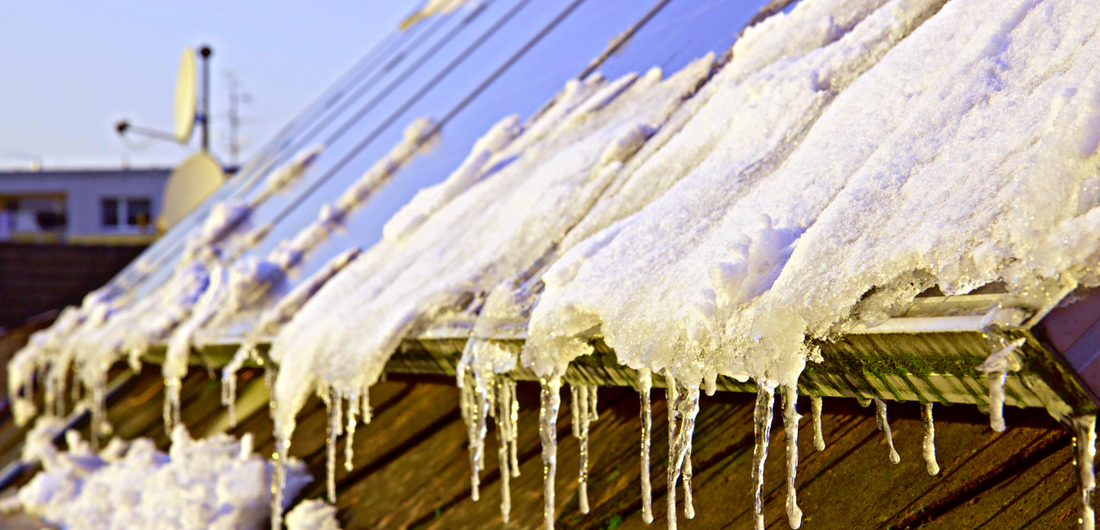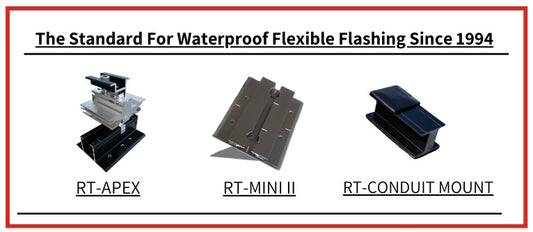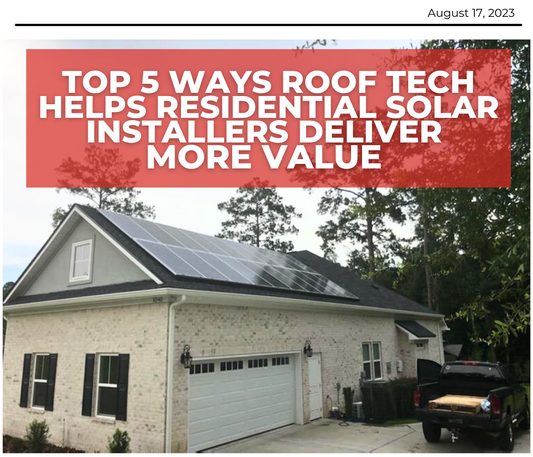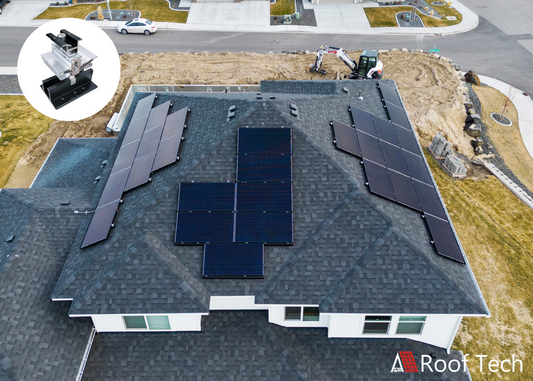Freezing Winter Weather is No Match for Roof Tech AlphaSeal™ Technology
Last Updated On Roof Tech US
In many parts of the U.S, harsh winters and frigid temperatures can wreak havoc on roofing, especially when ice dams form on eaves and around solar panels. Although roof temperatures can be warmer than air temperatures due to heat rising from the interior, extreme winter cold can cause asphalt shingles to become brittle and crack if they are lifted during the PV installation process – a scenario that can quickly compromise the integrity of the roof and cause leaks. “Most manufacturers of asphalt shingles recommend a minimum ambient temperature of 40°F before doing any work on asphalt roofing because of the danger of shingles cracking,” explained Mike Dunlap, Roof Tech Sales Director. “But Roof Tech’s flashing with AlphaSeal™ Technology eliminates the need to lift shingles and delivers an impermeable seal in temperatures as low as 22°F. Installation crews working in temperatures below 22°F also know to use heat guns to warm the AlphaSeal™, so it softens just enough to form an impermeable seal.”
AlphaSeal™ Technology from Roof Tech. The top caulk-free integrated mounting solution.
AlphaSeal™ eliminates the need for caulking with the strength of butyl, a synthetic rubber copolymer of isobutylene with isoprene that delivers superior flexibility and is completely impermeable to moisture. Roof Tech’s parent company, Yanegiken, pioneered flexible flashing in 1994, and the introduction of AlphaSeal™ Technology set a new standard for leak-free performance in solar mounting solutions. “Roof Tech has the only rail-less PV mounting system that is fully certified by the ICC,” noted Milton Nogueira, Roof Tech’s Senior Business Development Manager. “In 2014, ICC Evaluation Services (ICC-ES) issued ESR-3575 to Roof Tech for RT-E Mount with AlphaSeal™ Technology. What’s more, we offer a 25-year warranty on all our products.”
What installers need to know about the impact of Ice dams and how to protect the roof.
Because roofing is always exposed to the elements, winter weather varies with heating and cooling cycles that cause snow and ice to melt on sunny days and re-freeze at night, creating ice dams on the eaves and in the roof “valleys.” Mike Dunlap explained that building codes require roofers to install a special ice and water shield in these areas to protect against ice dams. “This forms a membrane-like shield that prevents any water from seeping under the roofing material, so there are never any leaks,” he said. Milton Nogueira added that “AlphaSeal™ is the only product that creates a 100% waterproof seal that stops water encroaching from all directions so it can’t re-freeze and cause shingles to crack.”
Thanks to AlphaSeal™ Technology, Roof Tech is now the #1 solar mounting solution in Canada.
Joe Perez, Roof Tech Sales Manager for the Northeast and Canada, has first-hand experience working with installation crews in some of the coldest temperatures on the North American continent. “Our products have been installed in the Yukon Territory of Canada for more than four years now, and there isn’t a single documented case of product failure,” he said. “There’s a complete absence of service calls due to ice dams,” Perez added that Roof Tech now has more than 50% market share in Canada, and virtually all major distributors carry Roof Tech products.
Engineering to withstand over 75 lbs. of snow load wins Roof Tech a major job in Canada.
Joe Perez recounted the story of an installer in Nova Scotia who was contracted to install a 50KW array on a government building in New Brunswick. “The customer was very concerned that conventional flashing could cause damage to the roof,” he said, “but when they discovered that Roof Tech was engineered to handle more than 75 lbs. of snow load, they approved the job.” As Perez explained, most commercial installers are used to working on flat roofs, so when they see a pitched roof, they are unsure about how best to get the job done. Now the word has spread about Roof Tech and the ease of installation. “All prep work for Roof Tech products is done on the ground,” said Perez, “so there’s less time on the roof and a faster, easier installation.” He added that another one of his customers is in the Yukon Territory, where temperatures dropped to -50°F last winter, not including the wind chill factor. “Most installers try not to install in extreme weather, but sometimes they have to,” he said. “Now our customers in Canada know who provides the best mounting products for cold-weather performance – Roof Tech, Inc!”



